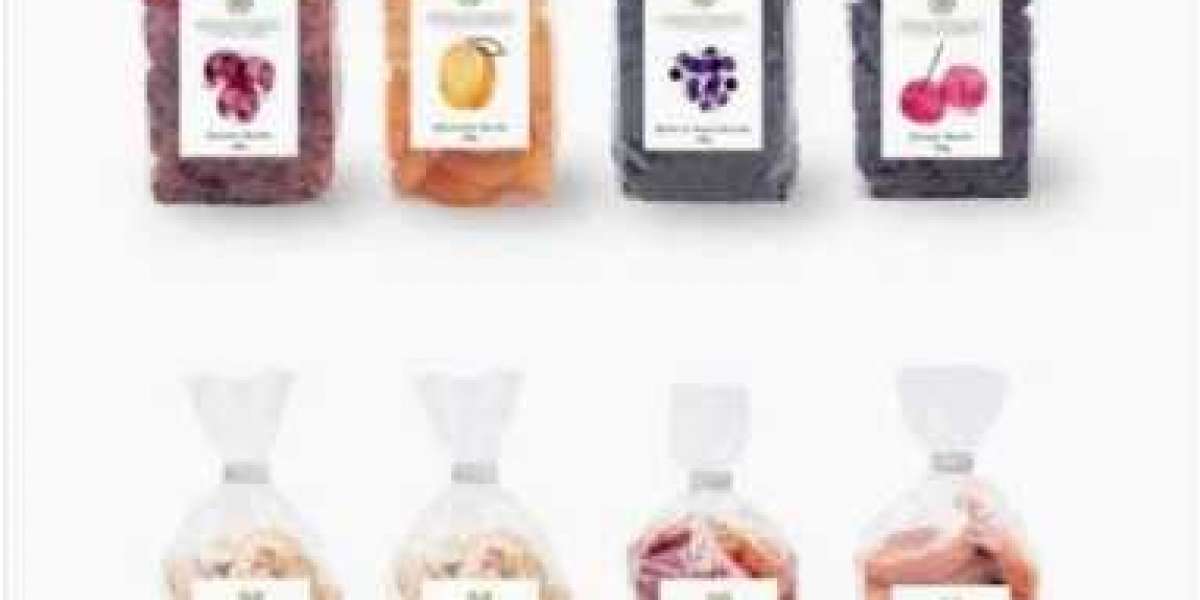Introduction to food preservation
Preserving food has been an age-old practice that allows us to enjoy the taste and nutrition of fruits and vegetables long after their harvest. From ancient civilizations drying fruits under the sun to modern techniques like canning and freezing, the art of preservation has evolved over time. One effective method that often goes unnoticed is using specialized bags designed specifically for storing produce. These simple yet ingenious bags not only help prolong the shelf life of our favorite fruits and veggies but also preserve their flavor, texture, and nutritional value. In this blog post, we will explore the benefits of using fruits and vegetables bags, discuss different types available in the market, share useful tips for proper usage and storage, all with a focus on preserving your produce effectively with Sunkey packaging - your go-to solution for freshness! So let's dive into the world of food preservation through these incredible bags!
Benefits of using fruits and vegetables bags
When it comes to preserving fruits and vegetables, using the right bags can make all the difference. Fruits and vegetables bags offer a range of benefits that help prolong the shelf life of your produce and keep them fresh for longer.
One of the key advantages of using these specialized bags is their ability to regulate airflow. These bags are designed with small perforations that allow just the right amount of air circulation, preventing moisture buildup while still maintaining optimal humidity levels. This helps prevent mold growth and keeps your fruits and vegetables from spoiling prematurely.
Another benefit is that these bags provide protection against ethylene gas. Ethylene is a natural hormone produced by many fruits and vegetables as they ripen. While this gas aids in ripening, too much exposure can lead to over-ripening or spoilage. Fruits and vegetable bags contain activated carbon filters that absorb excess ethylene gas, keeping your produce fresher for longer.
Furthermore, these bags act as a barrier against external factors such as light and bacteria. Sunlight can accelerate the breakdown of nutrients in fruits and vegetables, causing them to lose their freshness quickly. By storing your produce in these opaque bags, you shield them from harmful UV rays.
In addition to preserving freshness, fruit and vegetable bags also help reduce food waste by extending the shelf life of your produce. We all know how frustrating it can be when our favorite fruits or veggies go bad before we get a chance to enjoy them fully. With proper usage of these specialized storage solutions, you can significantly reduce food waste while enjoying your favorite foods at their peak flavor.
So whether you're an avid gardener looking to store homegrown harvests or simply someone who wants to keep their store-bought produce fresh for longer periods, investing in high-quality fruit and vegetable bags like those offered by Sunkey packaging will prove invaluable in preserving freshness, reducing waste, and ultimately saving money on groceries!
Different types of bags for different produce
When it comes to preserving fruits and vegetables, not all bags are created equal. Different types of produce require different storage conditions to stay fresh for longer periods. That's where specialized fruits and vegetables bags come in handy.
For leafy greens like lettuce or spinach, breathable mesh bags are the way to go. These porous bags allow proper airflow while still protecting delicate leaves from wilting too quickly. The mesh material prevents moisture buildup, preventing rot and extending the shelf life of your greens.
For delicate berries such as strawberries or blueberries, opt for plastic clamshell containers or resealable plastic bags with perforations. These containers provide protection against bruising while still allowing some air circulation.
Root vegetables like potatoes and onions prefer dark, cool environments to prevent sprouting and spoilage. Store them in burlap or cotton sacks that offer breathability while keeping out light exposure.
Fragile fruits like peaches or apples benefit from cushioned packaging options such as foam fruit sleeves or soft drawstring fabric pouches. These protect the skin from damage during transportation and storage.
Citrus fruits do well in simple paper grocery bags since they need proper ventilation but can tolerate a bit more moisture compared to other produce items.
By using the right type of bag for each fruit or vegetable, you can ensure optimal preservation conditions that extend their freshness significantly!
Remember that these are just general guidelines – always take into account specific recommendations for each type of produce when storing them!
Tips for proper usage and storage of produce bags
Proper usage and storage of produce bags are essential when it comes to preserving the freshness and quality of your fruits and vegetables. Here are some tips to help you make the most out of these handy bags.
It's important to choose the right type of produce bag for each item. For delicate or leafy greens, opt for breathable mesh bags that allow air circulation. On the other hand, sturdy plastic bags with perforations work well for firmer produce like apples or potatoes.
When using a produce bag, always ensure that your fruits and vegetables are clean and dry before placing them inside. This helps prevent moisture buildup which can lead to spoilage. Additionally, be mindful not to overcrowd the bag as this can cause bruising or squishing of delicate items.
Once your produce is in the bag, store them in an appropriate place. Most fruits prefer cool temperatures but not below freezing point, so refrigeration is often recommended. However, certain vegetables like tomatoes or bananas should be stored at room temperature instead.
Remember to check on your stored fruits and vegetables regularly. Remove any spoiled items promptly to prevent mold from spreading and contaminating others nearby.
By following these simple tips for proper usage and storage of produce bags, you can extend the shelf life of your fresh produce significantly while reducing food waste! So grab those bags today and keep enjoying nature's bounty for longer periods!
Conclusion and recommendations for preserving produce effectively
Preserving the freshness and extending the shelf life of fruits and vegetables is crucial to minimize food waste and ensure that we can enjoy their nutritional benefits for longer. Thankfully, using fruits and vegetables bags is a simple yet effective way to achieve this goal.
By preventing excess moisture buildup, controlling ethylene gas release, and reducing exposure to harmful external elements, these specialized bags help maintain the quality of produce over an extended period. Whether you choose breathable mesh bags or airtight containers, there are options available to suit different types of produce.
To make the most out of your fruits and vegetables bags, here are some essential tips:
1. Wash thoroughly before storing: Ensure that your produce is clean and dry before placing them in the bags. This will prevent any bacteria or mold growth that could spoil other fruits or veggies stored alongside them.
2. Store similar items together: Different types of produce emit varying amounts of ethylene gas. To avoid premature ripening or decay, store ethylene-producing items like tomatoes separately from those sensitive to it like leafy greens.
3. Avoid overcrowding: Overfilling your fruit and vegetable bags can lead to bruising or squishing, which accelerates spoilage. Allow ample space between each item for proper air circulation.
4. Check regularly for spoilage: Even with proper storage techniques, it's important to keep an eye on your produce regularly. Remove any spoiled items immediately as they can hasten deterioration in others nearby.
5. Store in optimal conditions: Certain types of produce have specific temperature requirements for optimal preservation—such as keeping root vegetables cool but not cold—so be sure to familiarize yourself with these guidelines.
In conclusion, by incorporating these recommendations into your routine when using fruits and vegetables bags from Sunkey packaging (there's our SEO keyword!), you'll significantly prolong the lifespan of your fresh produce while reducing food waste.








